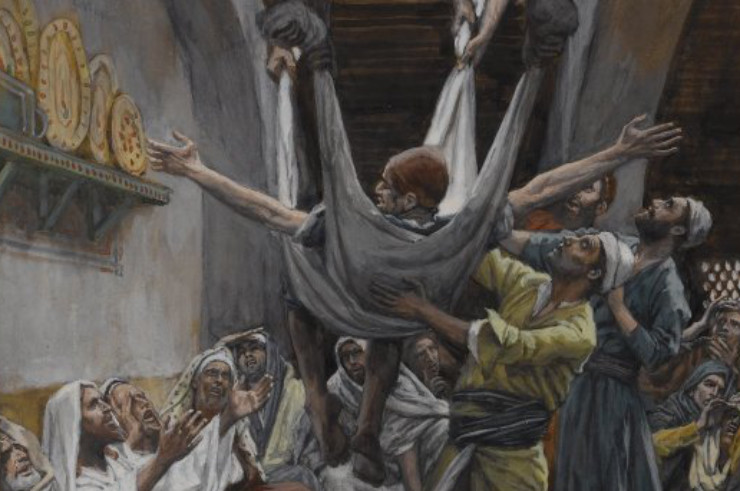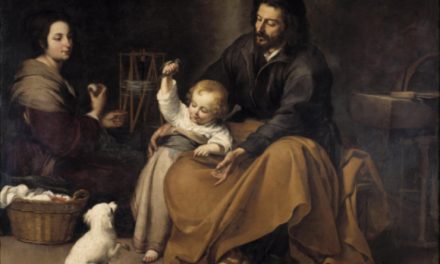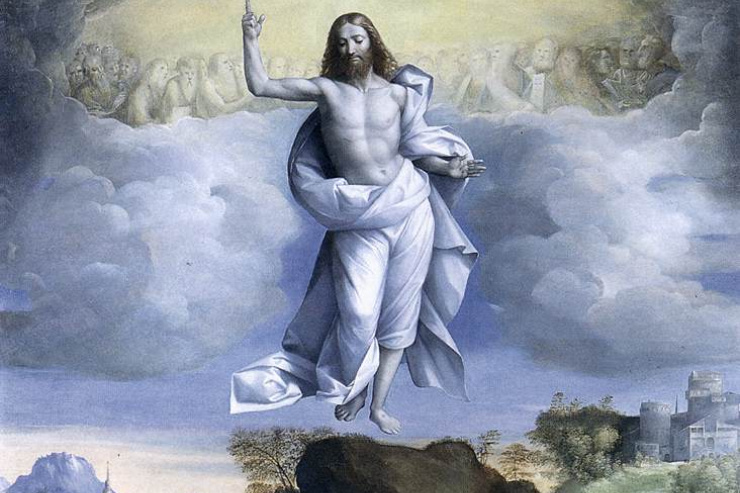
“They knew they couldn’t heal their friend themselves. But they could bring him to Jesus.”
As we jump into Ordinary Time this week, the Gospel readings at daily Mass don’t lose any time moving through the extraordinary works of Jesus’ public ministry. This is because Ordinary Time always begins with Mark’s Gospel, and Mark doesn’t lose any time with anything. It seems his favorite word is “immediately,” and Jesus moves quickly in his Gospel.
Today’s Gospel gives us the familiar story of the healing of the paralytic in Capernaum (Mark 2:1-12). Since the crowds were making it impossible to get to Jesus, the friends of the paralytic broke through the roof. I remember hearing this story as a child; the scene captured my imagination. Not knowing much about housing arrangements in the first century, I wondered what it was like to remove a roof. Was the owner angry?
The story is a great candidate for lectio divina or an Ignatius meditation. Take time to reread the passage, reading it extra slowly. Forget the fact that you’ve heard it dozens of times before. Put yourself into the scene. Perhaps imagine being in the crowd outside, who is trying to hear what Jesus is saying, and you see the men coming up with their grand plan. Or maybe you’re inside, and their plan comes to your attention as sunlight begins to stream into the room from a hole. Maybe you’re the owner, or a disciple, or one of the friends. Or maybe you’re the paralytic himself.
One important detail I never noticed as a child fascinated by disappearing roofs was the reason Jesus healed the paralytic. Look back at the story again. He does not say, like he does in so many other miracles, “Your faith has saved you.” Rather, Mark (in addition to Matthew and Luke) notes that it was on account of their faith. Jesus is rewarding not just the faith of the man, but that of his friends as well.
We are called to be those friends.
Those friends knew what their paralyzed friend needed, and they were willing to do anything to help him. They knew they couldn’t heal their friend themselves. But they could bring him to Jesus. And they didn’t let the opinions of others to keep them from giving their friend what he needs.
We must bring our friends to Jesus, allowing nothing to stand in our way. Despite the difficulties, or when there are hurdles and roadblocks, we bring them to Christ. Even if it’s embarrassing or we make fools of ourselves, we set that aside and bring our friends to Christ.
Maybe it’s a friend in desperate need of prayers and sacrifices, and you offer up our own crosses throughout the day and ask Christ to alleviate his or hers in return. Maybe it’s inviting a friend to go to the sacrament of Confession with you. Perhaps it’s supporting a friend or lending a hand when it’s inconvenient for you. Or maybe it’s simply listening to the friend who feels alone.
May Christ give us the strength—because after all, we are all the paralytic, deep down. We cannot save or heal ourselves. We all need Christ. All of us need to be carried, by our friends and family, and by the Church and the sacraments. May Christ give us the strength to be true friends, always bringing people to Him.
Please share this article on Facebook and other social media below.














